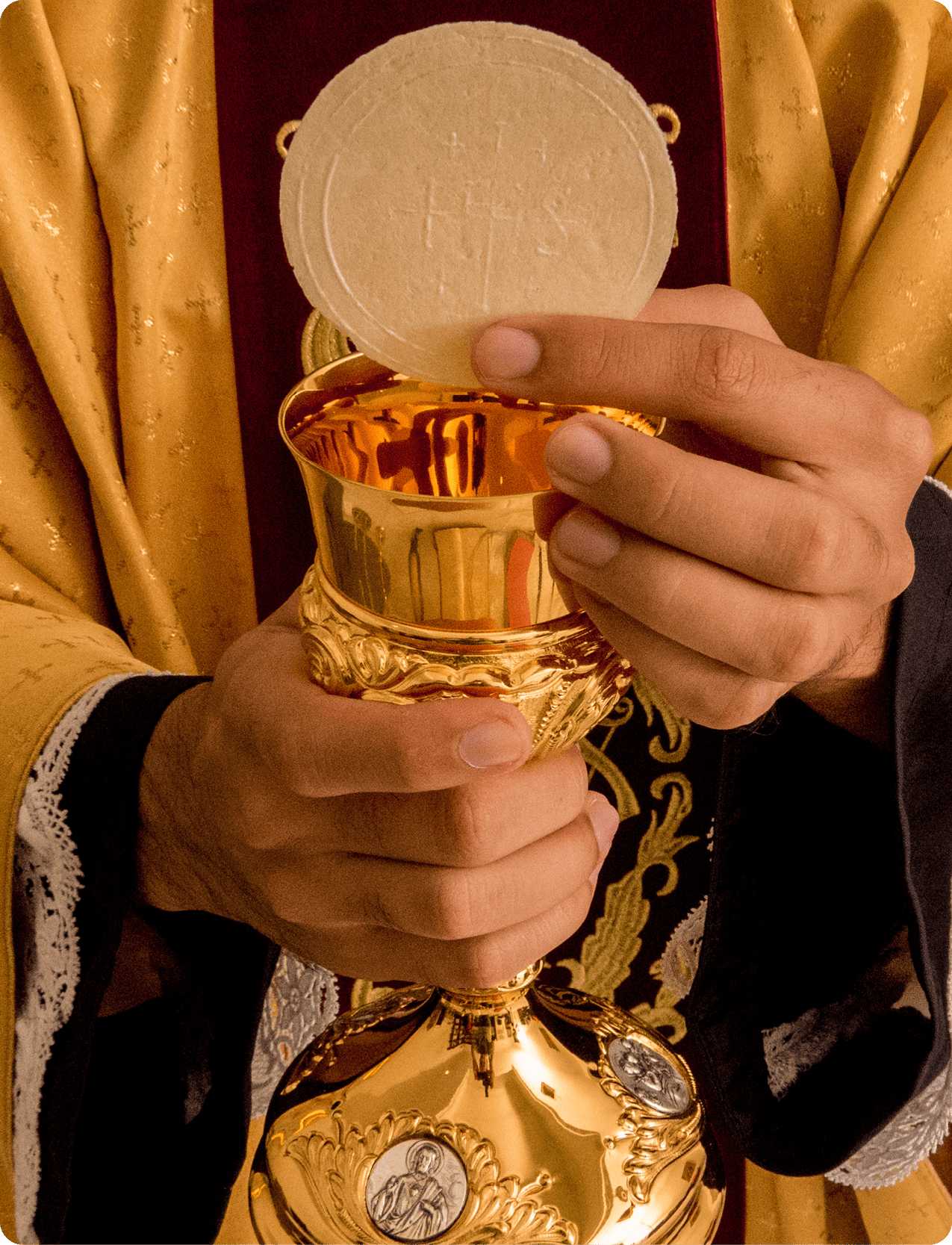“Then after you have partaken of the Body of Christ, draw near also to the Cup of His Blood; not stretching forth your hands, but bending, and saying with an air of worship and reverence, ‘Amen,’ hallow yourself by partaking also of the Blood of Christ.” — St. Cyril of Jerusalem
Notably in the Gospel, Jesus tells us, “I am the bread of life.” Bread stands in as the sign of sustenance, as bread is a basic, fundamental food. However, Our Lord also teaches, “I am the vine.” The matter of the Eucharist is not merely bread, but also wine. While we might think of bread as the quintessential food, food that sustains, wine points to another meaning of the Eucharist. Wine fills the spirit interiorly, refreshing and giving solace. “Wine, in the Scriptures,” says Bishop Robert Barron, “is a symbol of the exuberance and intoxication of the divine life. When God is in us, we are lifted up, rendered joyful, transfigured.” Unsurprisingly, then, at the end of the Jewish Passover meal, the offering of the “cup of blessing” suggests comfort, delight, even hope. The Eucharist — the Body and Blood of Christ — not only sustains us as food that gives strength from day to day, but also revives our weary hearts, giving us new strength and renewed joy.
LET US PRAY
Lord Jesus, you are truly present under the guise of wine. May your precious blood renew my soul, filling my heart with an abundance of hope and joy. May I be granted the grace to always delight in you. Amen.

PRAYER TO THE EUCHARIST
O God, who in this wonderful Sacrament have left us a memorial of your Passion, grant us, we pray, so to revere the sacred mysteries of your Body and Blood that we may always experience in ourselves the fruits of your redemption. Who live and reign with God the Father in the unity of the Holy Spirit, God, for ever and ever.
-Collect for the Feast of Corpus Christi, composed by St. Thomas Aquinas
